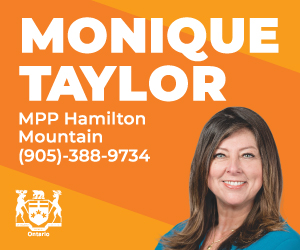Paying too much tax?

Consider these tips and tax shelters to lower your family's tax bill.
Knowing how tax rules affect your investments is essential to maximizing your after-tax return. In addition, keeping up to date on changes to the tax rules ensures that you take advantage of all the tax savings available to Canadian residents. Here are a few strategies to assist you in reducing your tax bill.
Maximize your tax-deferred and tax-sheltered savings with an RRSP or TFSA
Your registered retirement savings plan (RRSP) is likely the cornerstone of your overall retirement strategy. Allowable contributions to your RRSP are tax deductible and the income earned in an RRSP is not taxed until it is withdrawn. This means that your savings will grow faster in an RRSP than they would if held outside an RRSP. Some ideas to optimize your RRSP savings include maximizing your annual contribution limit, contributing securities “in kind,” deferring the maturity of your RRSP until age 71 and contributing to a spousal RRSP if you and your spouse/common-law partner will have disproportionate retirement income levels.
The tax-free savings account (TFSA), introduced in 2009, is a general purpose, tax-efficient savings vehicle that allows individuals, 18 years of age or older, to contribute annually (up to $6,500 in 2023) to this account. Income, dividends and capital gains earned within the plan, and withdrawals, are tax-free. A TFSA is beneficial for many investors and for many different reasons, including saving for short-term purchases, such as a car, or saving for longer-term goals such as a down payment for the purchase of a house. TFSAs can also be an effective income-splitting tool. A higher-income spouse can give funds to the lower-income spouse or an adult child so that they can contribute to their own TFSA (subject to their own personal TFSA contribution limits), since the attribution rules (where interest, capital gains and dividends are taxable in the hands of the originator of the funds) don’t apply to income earned within the spouse’s or adult child’s TFSA.
When you make a withdrawal from a TFSA you can put the withdrawn amount back into your TFSA the following year over and above the annual contribution limit. Contributions are not tax deductible.
Income splitting and gifting
Under our tax system, the more you earn, the more you pay in income taxes on incremental dollars earned. With this in mind, it makes sense to spread income among family members who are taxed at lower marginal rates in order to lower your family’s overall tax burden, subject to the income attribution rules. Some of the more common income-splitting strategies you may want to discuss with your tax advisor:
- An interest-bearing loan at the prescribed interest rate to family members in a lower tax bracket.
- Pension income splitting between spouses.
- Have most of the household expenses paid by the higher-income earner, allowing the lower-income earner to build investment income at their lower tax bracket.
- Gift money to adult children or other adult family members (other than your spouse or common-law partner.)
- Gift money to minor children through a trust to acquire investments that only generate capital gains.

Make your portfolio tax efficient
In evaluating investments for your portfolio, you should consider the impact of income tax, since not all investment income is taxed in the same manner. Despite the wide range of investments available, there are three basic types of investment income: interest, capital gains and dividends. Interest income is fully taxable at your marginal tax rate, whereas you only pay tax on 50 per cent of a capital gain. Canadian dividends also receive special tax treatment through federal and provincial dividend tax credit mechanisms.
Use an RESP to save for children’s education needs
The increasing cost of post-secondary education in causing many parents to be concerned about funding their child’s education. The benefits of the Canada Education Savings Grant (CESG), combined with the advantages of a registered education savings plan, make RESPs a very attractive vehicle to fund your children’s or grandchildren’s education. Contributions to an RESP are not tax deductible, however the income from investments in the plan is tax sheltered as long as it remains in the plan. Withdrawals to pay education expenses from accumulated income and grant monies are taxable in the student’s hands at their marginal tax rate which, typically, are quite low.
Donate approved securities
The benefits of making a charitable donation are countless, from helping those in need to the personal satisfaction we feel when giving something back to a cause we feel passionate about. With proper planning, you can also reduce your income tax and maximize the value of your donation. A donation of publicly traded securities may be preferred over a cash donation of equal value, particularly in cases where you have already decided to dispose of the securities during the year. A charitable tax receipt equal to the fair market value of securities donated to charity will reduce your taxes through a donation tax credit. Donations over $200 made from income subject to the top federal marginal rate can result in tax savings approximating 50 per cent of the value of your donation (depending on your province of residence.)
A donation of securities is considered a disposition for tax purposes. However, because of the tax incentives on a donation of qualifying securities to charities, the capital gains rate is zero instead of 50 per cent.
First home savings account (FHSA)
The FHSA is a new registered plan, coming soon, that will allow firs- time homebuyers to save up to $8,000 a year up to a maximum of $40,000. Like RRSPs, contributions will be tax deductible so you can reduce your taxable income when you file your tax return. Investment income is not tax-deductible and withdrawals for a home purchase won’t be taxed. If you decide to use the money for something other than a home purchase you can transfer the funds into an RRSP without affecting your contribution room.

Georgia Corkins is an investment advisor and financial planner for BMO Nesbitt Burns. She has been an advisor for 32 years and works on a broad range of solutions for her clients’ financial needs. Opinions expressed are her own and may not reflect those of BMO Nesbitt Burns.









